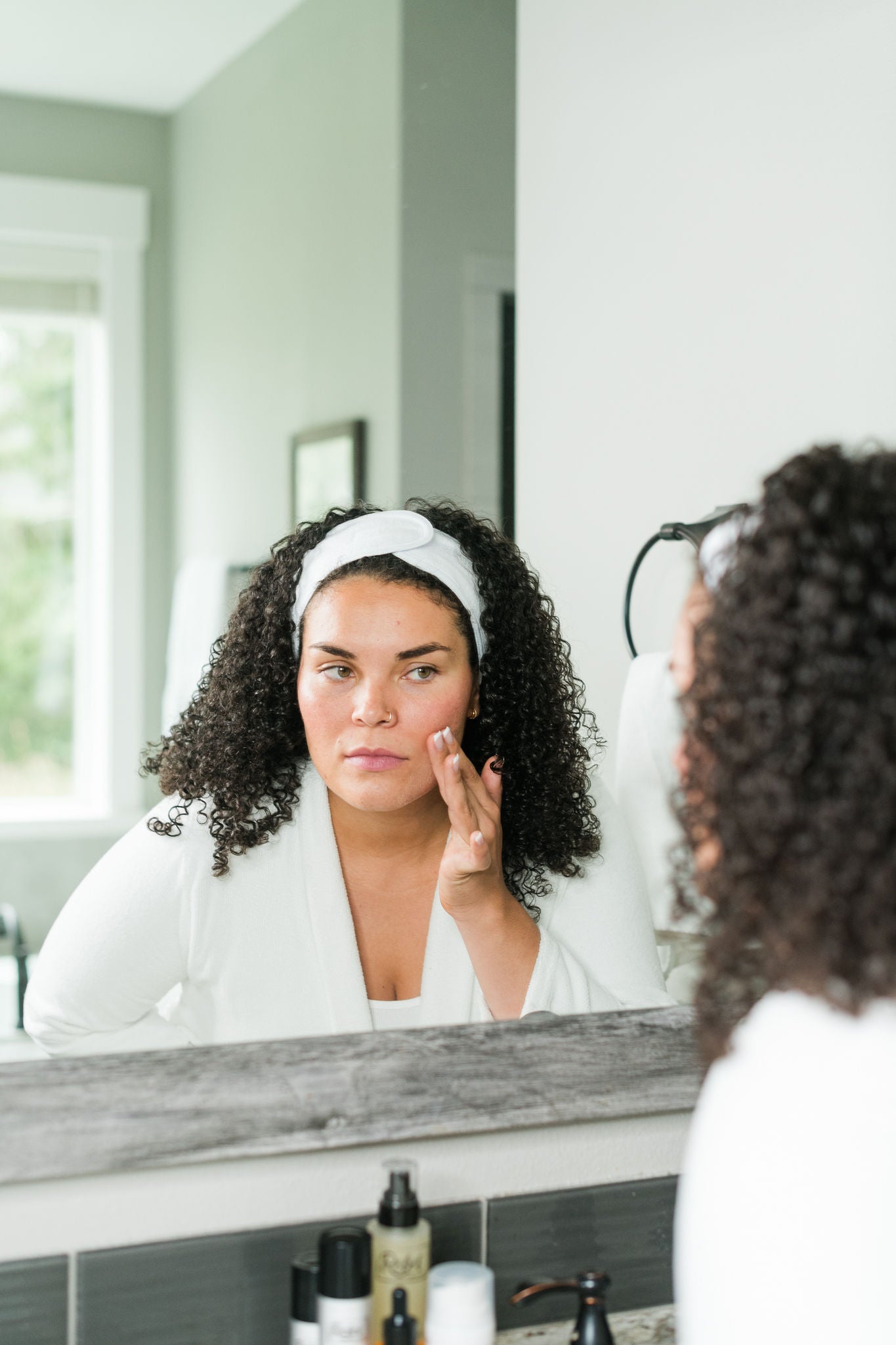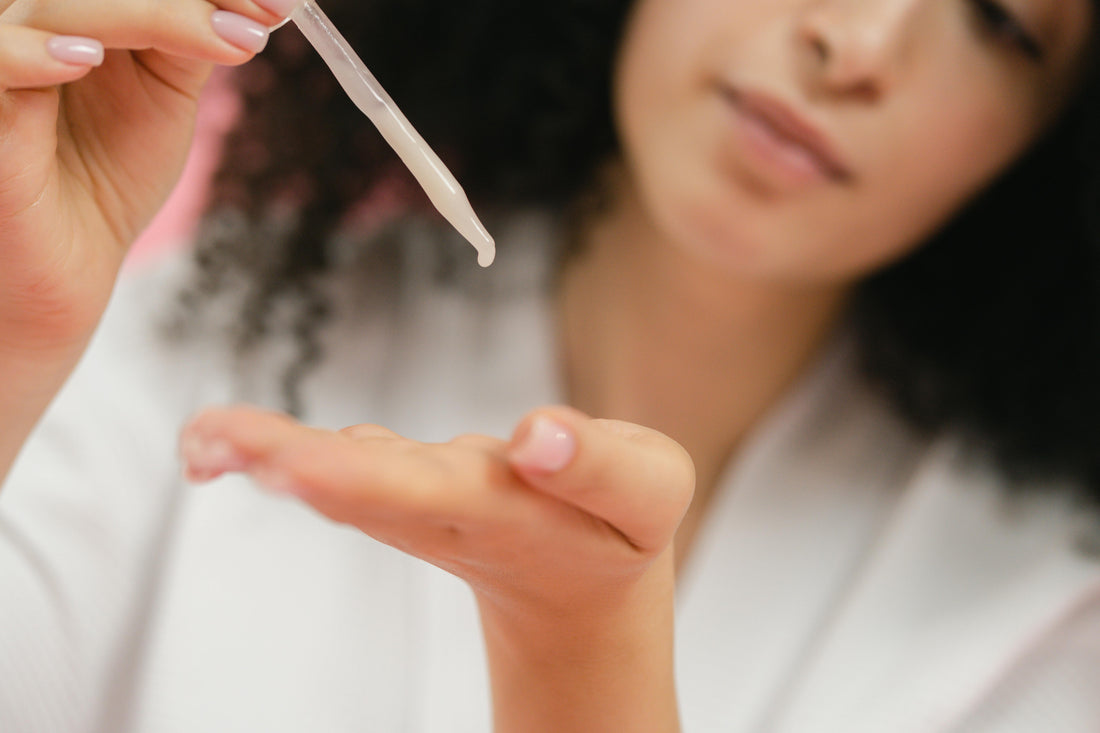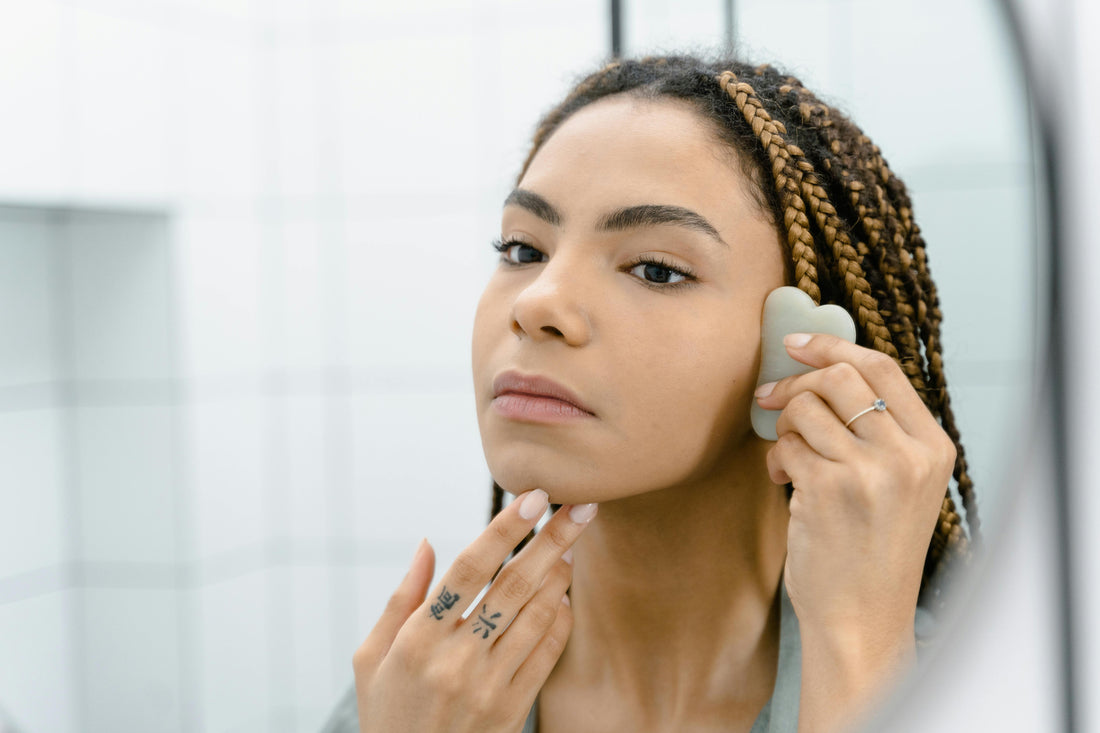Hyperpigmentation is a very common skin condition characterized by darkened patches or whole areas of the skin. It is caused by an overproduction of melanin and can happen to anyone, regardless of their skin type.
There are many reasons for hyperpigmentation, ranging from sun exposure to hormonal changes. In this article, we will discuss the scientific reasons behind hyperpigmentation, its causes, how to prevent it, why Vitamin C is pivotal in managing it, and several other treatment methods. Let's get your glow on!
What Are the Main Causes of Hyperpigmentation?
Hyperpigmentation happens when your body produces too much melanin, the pigment responsible for your skin, eyes, and hair color. Excess melanin accumulates in specific areas, leading to visibly dark patches of skin. Understanding what causes hyperpigmentation is important in order to manage it properly.
You can suffer from hyperpigmentation for the following reasons:
Sun Exposure (Photodamage)
Sun exposure comes first when considering the main causes of hyperpigmentation. When you're in the sun longer than is needed for a good tan, you could get hyperpigmentation in certain areas that were exposed to the direct ultraviolet rays of the sun. UV radiation triggers melanocytes, which produce more melanin to protect your skin from sun damage. After a while, you get age spots, freckles, and sunspots. Studies show that consistent UV light exposure accounts for 90% of skin aging and can significantly increase your chances of getting hyperpigmentation.
Hormonal Changes (Melasma)
Hormones are a contributing factor to hyperpigmentation. Pregnancy or birth control pills can result in melasma, a condition characterized by brown or gray-brown patches on the face. It is more common in women. An increase in estrogen and progesterone can stimulate melanin production and lead to melasma.
Post-Inflammatory Hyperpigmentation (PIH)
When you have skin irritations like acne, eczema, or even burns, you can get PIH. During healing, your skin may overproduce melanin in the affected areas, leaving dark patches behind. Research shows that inflammation during the healing process triggers melanocytes, which leads to excess melanin production.
Genetics
Genetics can predispose you to hyperpigmentation. People with hereditary tendencies to produce more melanin may suffer from spots, freckles, and other forms of hyperpigmentation. For example, people with Fitzpatrick skin types IV to VI are more likely to suffer from hyperpigmentation due to the overproduction of melanin.
Medications and Skin Products
Medications used in chemotherapy or hormonal treatments can cause hyperpigmentation as a side effect. Skincare products containing retinoids or hydroquinone can trigger melanin production due to irritation and exfoliation.
Age
As we get older, our skin's regenerative ability reduces, and melanin production increases. Hyperpigmentation due to age may manifest as liver spots or age spots, in addition to wrinkles in individuals over 40. The spots become more visible when sun exposure increases.
How Do You Prevent Hyperpigmentation?
You can prevent hyperpigmentation by protecting your skin from factors that cause an oversecretion of melanin. Here are some science-backed methods.
Sun Protection
You can tackle hyperpigmentation by first protecting your skin from UV radiation. Research shows that using a broad-spectrum sunscreen with an SPF of 30 or higher can reduce your chances of getting sunburns or developing hyperpigmentation. Wearing clothes, hats, or sunglasses when spending time outdoors can also help reduce the intensity of the sun on your skin.
Avoiding Skin Trauma
Since PIH is triggered by skin irritation or injury, you can prevent this type of hyperpigmentation by avoiding unnecessary trauma to your skin. This means restraining the urge to pick your acne or other skin conditions and being careful when using strong exfoliators that can irritate the skin.
Gentle Skincare
Gentle skin care can maintain the skin's barrier and reduce the risk of hyperpigmentation. Scrubs and cleansers can strip the skin of its moisture and even scrap and cut it, leading to an overproduction of melanin during the healing process. It is important to choose products that are tailored to your skin type and have soothing constituents like aloe vera or hyaluronic acid that improve hydration.
Healthy Lifestyle Choices
Healthy life choices always do the work from the inside out. A diet rich in antioxidants and essential nutrients can help rejuvenate and restore lost minerals in the skin. Nutrients like Vitamin E and C and Omega-3 fatty acids serve as protectants against sun damage and inflammation. Staying hydrated promotes skin health and is always a necessary life choice.
Medication and Topical Treatments
Hydroquinone and retinoids can help treat and prevent hyperpigmentation by reducing melanin production. However, before using such treatments, contact a dermatologist to help you select the best treatment for your skin type and condition.
Will Hyperpigmentation Go Away? What Can I Do?
Your battle against hyperpigmentation depends on the main cause and how severe the conditions are. Hyperpigmentation stemming from sun exposure can be tackled quickly and even without treatment if the triggering conditions are removed.
However, for more severe cases, you may need to employ more professional treatment options to speed up the fading process. Here are some treatments you might want to consider when dealing with hyperpigmentation:
Professional Treatments
- Chemical Peels:
Dermatologists typically perform chemical peels, which exfoliate the skin and promote new cell growth. Such treatments are usually effective in treating melasma and hyperpigmentation.
- Laser Treatments:
Fractional C02 lasers or Intense Pulsed Light (IPL) work by targeting and breaking down melanin in the skin. The treatment can tackle stubborn hyperpigmentation, but for better results, you may need multiple treatment sessions.
- Topical Treatments
Products like hydroquinone, retinoids, and niacinamide are effective in treating hyperpigmentation over time. Studies have shown that niacinamides reduce dark skin appearances and improve skin texture.
Is Vitamin C Good for Hyperpigmentation?
If you're wondering if Vitamin C could help you manage your hyperpigmentation, then you are absolutely on the right track. Vitamin C is a strong antioxidant that helps brighten the skin and reduce dark patches caused by hyperpigmentation. It reduces the production of tyrosinase, an enzyme responsible for melanin production, and also eliminates free radicals that can lead to skin damage.
Studies have shown that using Vitamin C for an extended period reduces hyperpigmentation. It also increases collagen secretion, which improves the texture and tone of your skin. If you really want to get the most out of Vitamin C, look for products that can contain its stabilized forms, like ascorbic acid. Use them in the mornings for a more effective result.
A Clear, Bright Skin is Possible!
Anyone can develop hyperpigmentation from sun exposure, skin trauma, and even genetics. Although you may not be able to prevent it, you can find an effective method of managing it by understanding its triggers and causes.
Adopting a proactive skincare routine using consciously produced and highly effective products can also reduce signs of hyperpigmentation.
Consistent care, sun protection, and treatments like Vitamin C can be essential in managing existing conditions and even improving skin tone in general. With the right approach, you can minimize your risk of hyperpigmentation and develop healthier and more radiant skin.



